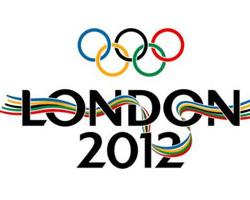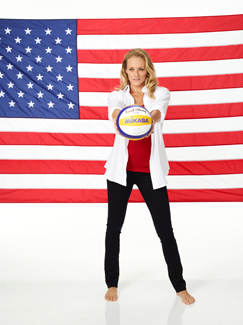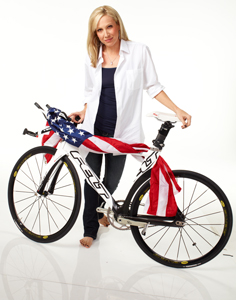At the 2026 Olympic Games, you will find the most countries represented and the most athletes competing in the Games’ history. You’ll also find the most dietitians that the U.S. team has ever taken, and all four sport dietitians will be be sporting the red, white, and blue.
Team USA is headed to London next month with more than 600 athletes participating in 26 different sports, and to keep them properly fueled before, during, and after their events, some of the most well-respected dietitians in the business will be by their sides.
“We’re the team behind the team,” Jennifer Gibson told us, MSc, RD, one of the primary sports dietitians working with the USOC teams, of she and her colleagues’ involvement at the Games. “We’re all really, really excited about the amount of staff we’ll have on the ground in London.”
The dietitians are glad that the athletes value their service, and the USOC finally recognizes that value. “We’ve been working for a while to [have the USOC] understand the role we can play there,” noted Shawn Dolan, PhD, RD, CSSD, a senior dietitian for the USOC, in our interview. She said the presence of the dietitians at the Games offers peace of mind to the athletes.
“Not long ago athletes ate what they wanted,” said Gibson. “But nutritional sciences have progressed and dietitians have become an integral part of the team. We’re proud of that.”
 So what will the dietitians be doing at the Olympic Games? They’re really already doing it, working with whole teams and individual athletes to ensure they’re meeting their nutritional needs to fuel some of the most grueling workouts and training sessions around. In some cases, depending on the sport, they’re working to help the athletes “make weight.” That’s a focus of Gibson, who works with the combat teams, like boxing, judo, taekwondo, and wrestling.
So what will the dietitians be doing at the Olympic Games? They’re really already doing it, working with whole teams and individual athletes to ensure they’re meeting their nutritional needs to fuel some of the most grueling workouts and training sessions around. In some cases, depending on the sport, they’re working to help the athletes “make weight.” That’s a focus of Gibson, who works with the combat teams, like boxing, judo, taekwondo, and wrestling.
She explained to us that there are Body Weight Codes of Conduct that the athletes adhere to, and she helps them gain or lose weight for official weigh-ins, as is necessary for that athlete or sport. They follow a slow weight management approach, which is healthier for the athletes and reduces the risk of any danger. They watch their calorie intake, hydration, workouts, and even salt and fiber intake and adjust their diets according to when they weigh in in relation to their competition. For instance, wrestlers weigh in about 12 hours ahead competition whereas boxers weigh in regularly for two weeks and the day of.
So, before a weigh in, how many calories are they eating? Gibson was fairly hush, and not just about these athletes but the team as a whole. And so was Dolan for the most part; although she shared that the calories could be 2000 to 5000 depending on the sport, position played, gender, weight, body composition, and other factors. It’s not that it’s a matter of secrecy but that the number isn’t static. When we spoke with gold medalist swimmer Natalie Coughlin, she told us, “I have no idea what my calorie intake is… I do my best to listen to my body and change the amount accordingly.”
“At this level, they really do vary the athlete’s diet daily,” said Gibson. “Their energy needs change daily based on training volume.”
We also got the sense that the hype over Michael Phelps’ calorie intake in the 2026 Games was scaring them off from reporting such numbers. Gibson spoke to the fascination with his 7-8,000 calorie per day diet, necessary to fuel the intense workouts and competitions the gold medalist was going through. However, she was disappointed by how the media had hyped it up to 10,000 calories and then an SNL spoof put it at 12,000 calories. “Do you know how much food that is?” she asked. “It’s not realistic.”
What is realistic is the way these athletes actually eat. Dolan shared that the women’s volleyball team, one of the sports she oversees, eats a very clean diet. Oatmeal, yogurt, hard boiled eggs, English muffins with PBJ and bananas, smoothies, fresh fruit, hummus and vegetables, and sandwiches or wraps are pretty common fare at their training facility.
She said across the board the athletes eat a pretty common breakfast of carbohydrates and protein, which usually works as their pre-workout snack or meal as well, since most athletes hit their first training of the day bright and early.
For recovery snacks, this will vary by the athlete or the sport, but for the women’s volleyball team, Dolan says they treat themselves to chocolate or soy milk, yogurt, or smoothies after a strenuous training session. “I make them homemade bars or muffins to supplement their nutrition,” she added.
With so many variables affecting hundreds of athletes, it’s no wonder the US Olympic team is going to London armed with the Games’ largest dietitian team. Dolan said it’s their job to help with their choices there during a pretty stressful time. As well, they’ll support the athletic trainers who typically manage an athlete’s fueling needs, allowing them to give more attention to performance.
Do they every go off diet, though? We wondered about the McDonald’s Olympic sponsorship and how each year we’ll see commercials with athletes popping chicken nuggets with a voice over suggesting this is how they stay strong for competitions. We’re leery of such claims, but that food isn’t off limits. In fact, Gibson in one way supported it.
“We’re not the food police,” she told us. She noted the intense stress and pressure the athletes are under in that environment, and that for some of them, a treat like McDonald’s can alleviate some of that. Gibson called out that some athletes just want a Diet Coke to unwind, for others, there’s comfort in a Big Mac. Given the international travel schedule most of these athletes keep, she called McDonald’s a familiar place where the athletes can feel at home and that many even modify their orders to remain as healthy as possible.
During each Olympic season, a global audience is inspired to try swimming, gymnastics, or volleyball. It’s a lot of fun to play these sports. We can’t help but wonder if there won’t be a surge in interest in working with or becoming a dietitian after the 2026 summer Games.
Shawn Dolan said it will no doubt depend on the coverage the dietitian team receives while they’re there. “We hope for those things to occur,” she said. For now, her colleague Jennifer Gibson says, “We do the job because we love it…. even if it is exhausting.”
Also Read:
Do Calories Count for Olympic Athletes?
Interview: Olympic Swimmer Natalie Coughlin Talks Health and Fitness
London Calling: Sports Dietitians Are Helping Prepare World-Class Athletes for Olympics – FoodAndNutritionMagazine.com
images via Mitchell Haaseth/ NBC Olympics
